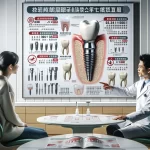Dental assistants are the backbone of any successful dental practice. They provide crucial support to dentists, ensuring smooth operations and exceptional patient care. If you’re considering a career as a dental assistant, or simply curious about the earning potential in this field, understanding compensation trends is essential. This article provides an in-depth look at dental assistant salaries in 2025, exploring the factors that influence income, regional variations, and strategies to maximize your earning potential.
Understanding Dental Assistant Salaries in 2025
A dental assistant’s salary is not a fixed number; it varies considerably based on several key factors, including geographic location, level of experience, education and certifications, and the type of dental practice they work in. Recognizing these elements is the first step in forming realistic salary expectations and identifying opportunities for career advancement and increased income.
Key Factors Influencing Income
Let’s delve deeper into the factors that determine a dental assistant’s earning potential:
Geographic Location: Where you work plays a significant role in your salary. Metropolitan areas, with their higher cost of living and greater demand for specialized dental services, generally offer higher wages than rural areas. For instance, a dental assistant working in a bustling city like San Francisco or New York City can expect a higher salary compared to someone working in a smaller town in a less densely populated state. This difference accounts for the higher expenses of living in an urban center and the increased competition for skilled professionals.
Experience and Education: As in most professions, experience is a valuable asset. Entry-level dental assistants typically start at a lower pay scale, but with each year of experience, their earning potential increases. Employers value the practical skills and knowledge gained on the job. Formal education and certifications also contribute significantly to higher salaries. Completing an accredited dental assisting program and earning certifications, such as those offered by the Dental Assisting National Board (DANB), demonstrates a commitment to professionalism and mastery of essential skills.
Type of Dental Practice: The specific field of dentistry in which you work can impact your earnings. Dental assistants working in specialized practices like orthodontics, oral surgery, periodontics, or pediatric dentistry often earn more than those in general dentistry. This is due to the advanced skills and specialized knowledge required to assist with complex procedures in these areas. For example, an orthodontic assistant needs to be proficient in fitting and adjusting braces, while an oral surgery assistant must be knowledgeable about surgical instruments and procedures.
Certifications and Specializations: Obtaining professional certifications can dramatically improve your salary prospects. The Dental Assisting National Board (DANB) offers certifications such as Certified Dental Assistant (CDA), Certified Preventive Functions Dental Assistant (CPFDA), and Certified Orthodontic Assistant (COA). These certifications demonstrate a high level of competency and commitment to the profession. Employers often prioritize candidates with certifications, recognizing their enhanced skills and knowledge. Furthermore, specializing in a particular area of dental assisting, such as radiography or infection control, can further increase your value to potential employers.
Average Salaries Across the U.S. in 2025
While it’s challenging to provide exact salary figures for 2025, we can analyze current trends and project potential earnings based on available data. Keep in mind that these are averages, and your actual salary may vary based on the factors discussed above.
National Average: According to recent data, the national average annual salary for dental assistants in the U.S. hovers around $48,000 to $55,000. However, higher-end estimates from some sources can reach upwards of $70,000+ for experienced and certified assistants in high-demand areas. The U.S. Bureau of Labor Statistics (BLS) remains a reliable source for up-to-date median wage information, typically released annually.
Hourly Wage: The average hourly wage for dental assistants typically ranges from $22 to $28 per hour, depending on experience, location, and certifications.
Regional Salary Variations: A Closer Look
Salary variations across different states and metropolitan areas can be significant. Here’s a comparison of average annual salaries in selected states:
| State | Average Annual Salary |
|---|---|
| California | $52,000 – $60,000 |
| Texas | $42,000 – $48,000 |
| Florida | $40,000 – $46,000 |
| New York | $50,000 – $58,000 |
| Ohio | $43,000 – $49,000 |
Note: These ranges are estimates based on current data and projected trends. Always consult the latest BLS data and local salary surveys for the most accurate information.
Some of the top-paying states for dental assistants include:
Alaska: Due to the high cost of living and demand for healthcare professionals, Alaska consistently ranks among the highest-paying states for dental assistants.
Minnesota: A strong healthcare sector and a relatively high cost of living contribute to higher salaries in Minnesota.
Massachusetts: The concentration of healthcare institutions and a competitive job market drive up salaries in Massachusetts.
New Hampshire: Similar to Massachusetts, New Hampshire benefits from its proximity to major metropolitan areas and a strong healthcare industry.
North Dakota: Despite its rural setting, North Dakota’s booming economy and demand for skilled workers have led to increased salaries for dental assistants.
Metropolitan areas within these states often offer even higher salaries. For example, the San Francisco Bay Area, New York City, and Boston typically have the highest earning potential for dental assistants due to the high cost of living and competitive job markets.
Strategies to Maximize Your Earnings in 2025
If you’re looking to boost your earning potential as a dental assistant, consider these strategies:
Pursue Advanced Certifications: Earning certifications from DANB, such as CDA, CPFDA, or COA, demonstrates a commitment to excellence and can significantly increase your earning potential. Consider specializing in areas like orthodontics, oral surgery, or periodontics to further enhance your skills and knowledge.
Gain Specialized Experience: Seek opportunities to work in specialized dental practices or gain experience with advanced procedures. This will make you a more valuable asset to potential employers and allow you to command a higher salary.
Negotiate Your Salary: Don’t be afraid to negotiate your salary when accepting a new position or during performance reviews. Research the average salaries for dental assistants in your area and present a strong case for your worth based on your experience, education, and certifications.
Relocate Strategically: If you’re willing to relocate, consider moving to a state or metropolitan area with higher average salaries for dental assistants. While the cost of living may be higher, the increased earning potential could offset those costs.
Network and Stay Informed: Attend dental conferences, workshops, and continuing education courses to stay up-to-date on the latest advancements in the field. Networking with other dental professionals can also open doors to new job opportunities and higher-paying positions.
The Future of Dental Assistant Salaries
The demand for dental assistants is projected to grow in the coming years, driven by an aging population and increasing awareness of the importance of oral health. This positive job outlook suggests that salaries for dental assistants will continue to rise. By investing in your education, gaining experience, and pursuing certifications, you can position yourself for a rewarding and financially secure career in dental assisting.
What is the average salary for a dental assistant in the United States?
The average salary for a dental assistant in the United States is $38,660 annually, according to the BLS.
How can I increase my salary as a dental assistant?
You can increase your salary by pursuing certifications, gaining experience, specializing in a certain area, relocating to higher-paying areas, negotiating your salary, continuing your education, and exploring career advancement opportunities.
What factors influence the salary of a dental assistant?
Several factors influence the salary of a dental assistant, including geographic location, experience and skill level, education and certifications, and the type of dental practice or facility you work in.







